5 Worst Cooking Mistakes When Making Mashed Potatoes
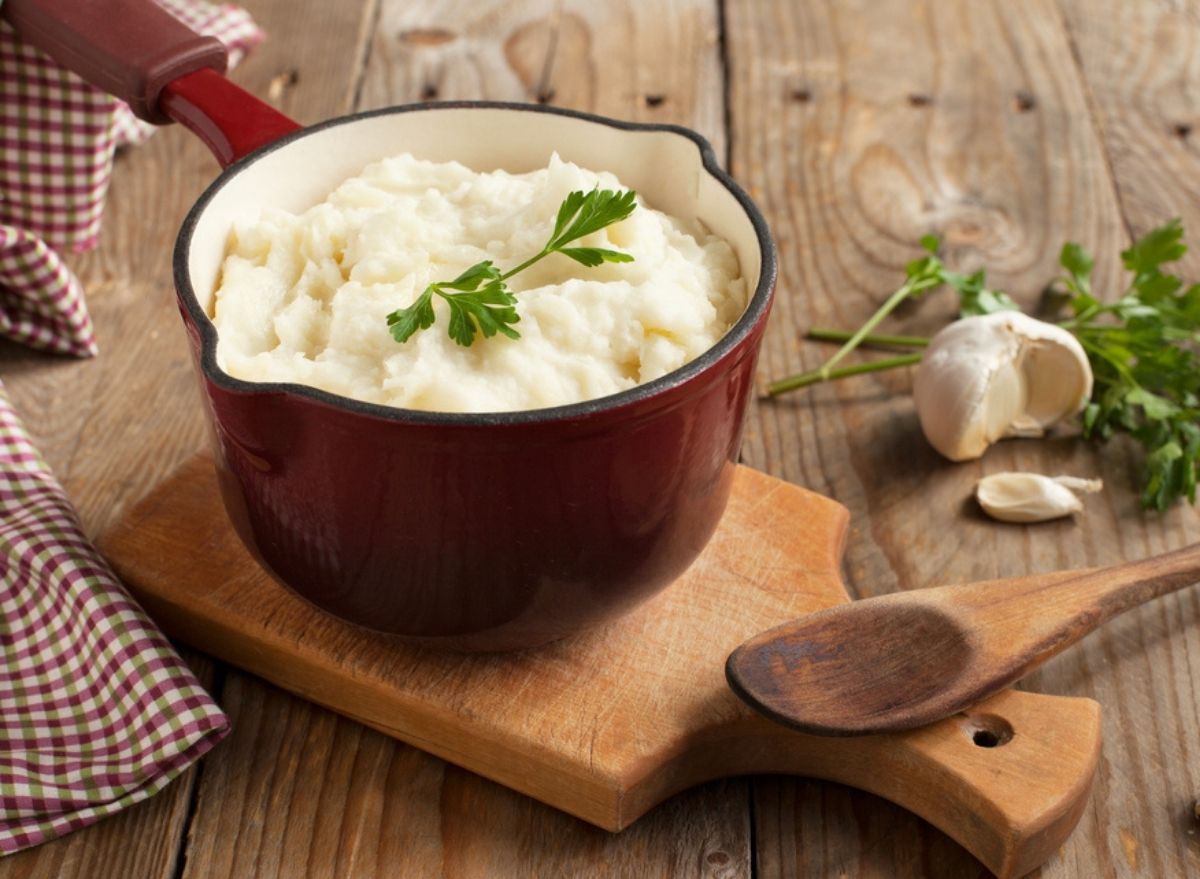
Soft, fluffy, and a comfort to us all—mashed potatoes. The classic side usually complements a main dish, but when made to perfection it can really steal the spotlight of the plate. But if you've ever turned mashed potato into a gooey mess, then you may be making some of the worst rookie cooking mistakes. It's time to salvage this savory side and clean up your technique so everyone always asks you to bring your flavorful mashed potatoes.
With the help of Chef Claudia Sidoti, a member of the ETNT Expert Advisory Board, and some tried-and-true tips from around the web, you can upgrade your mash game! Whether you're a whisker, a smasher, or a blender, here are the five worst mistakes to steer clear of when making mashed potatoes.
(Plus, if you're looking for some healthy meals for the week, try our 22 Meals to Melt Belly Fat in 2022.)
Use the right type of potato
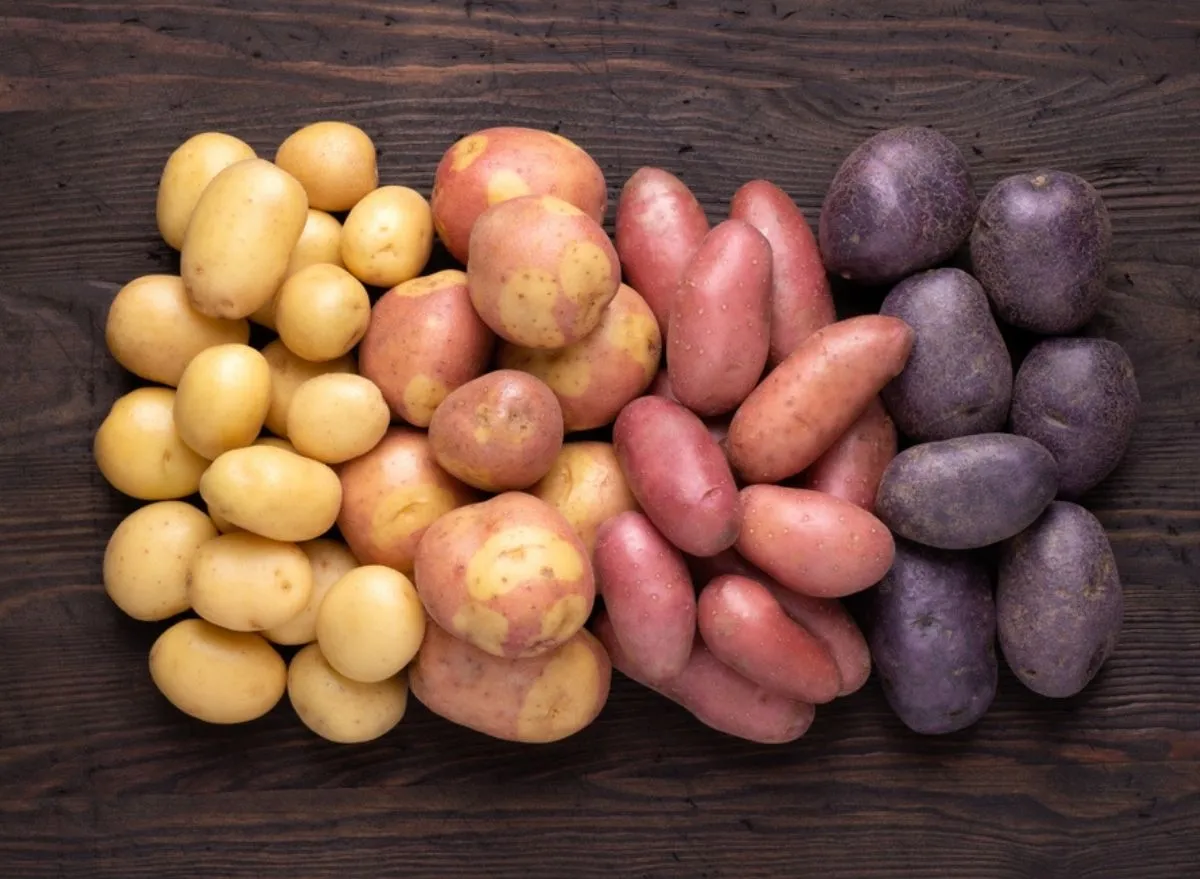
The type of potato you pick up from the grocery store can end up making or breaking mission light and fluffy. Starchy potatoes like russets are going to be your best bet for lightweight, pillow-like mashed potatoes. The starch allows the potatoes to separate easily and absorb your dairy ingredients (butter, cream and/or milk) with ease, says Southern Living.
But, if you're looking for another option that is less starchy and will still give you a great texture, try using Yukon Golds. These will mix up a denser whipped serving of mashed potatoes, but they are just as amazing and pair perfectly with a slice of juicy meat. "I prefer a Yukon Gold, but a good all-purpose potato does well too," says Sidoti.
Start with cold water
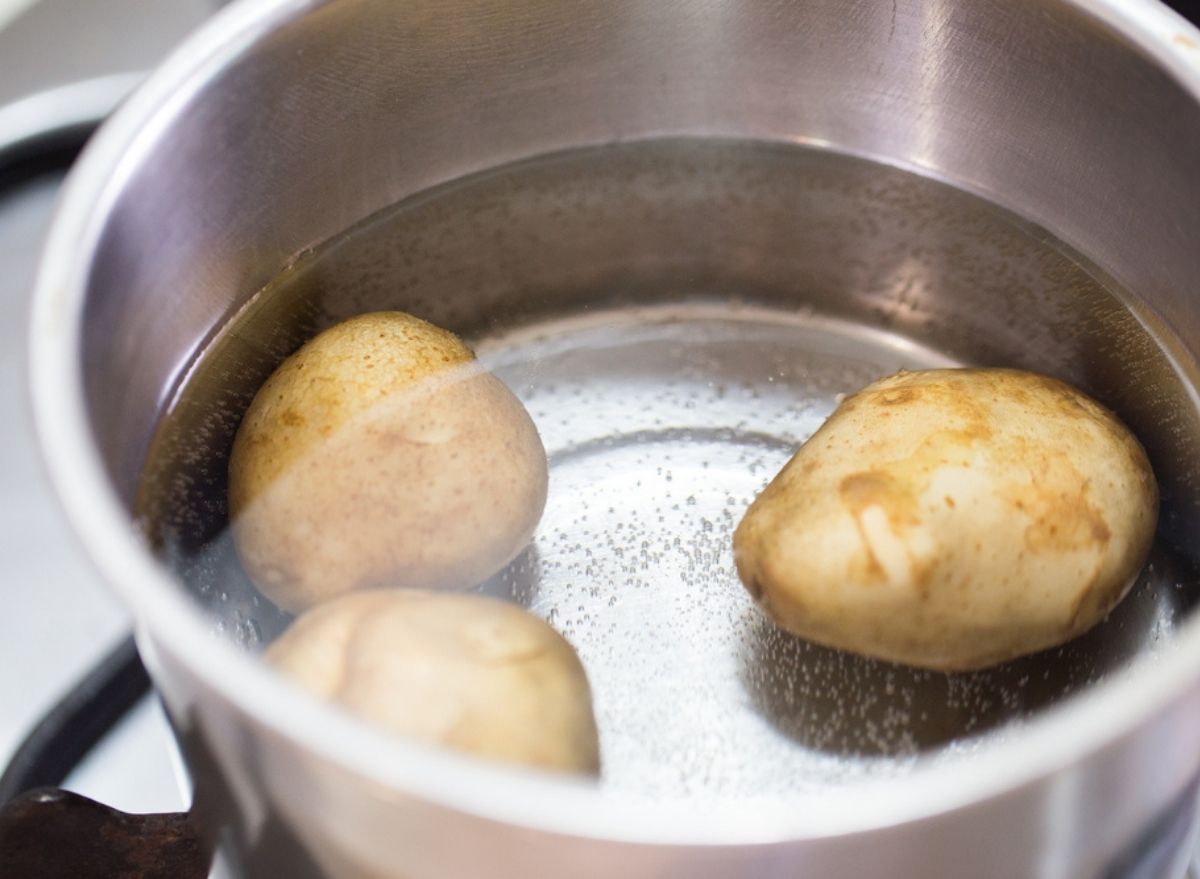
Adding your potatoes to boiling water is an absolute no-go! Always put them into cold water and then bring them to a boil. This will ensure that the spuds cook evenly all the way through, Sidoti explains. When you put potatoes into hot water the outer layer is cooked too quickly. If your potatoes are overcooked on the outside and undercooked on the inside, you'll get more bumps and lumps that can be too hard to mash out.
The cooked potatoes should be soft
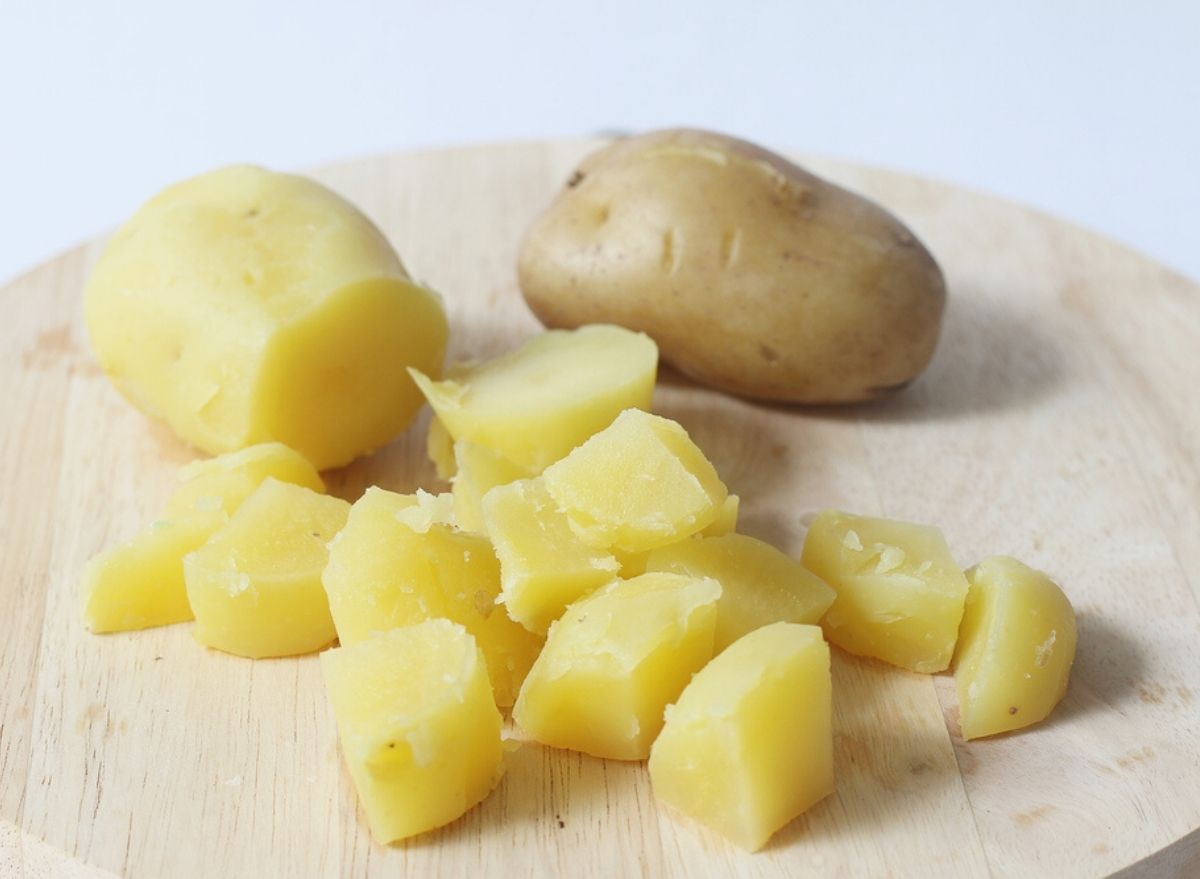
When you're mashing potatoes, you don't want your spuds to fight back. To ensure you have an easier mashing experience, make sure you're cooking your potatoes until fork-tender, says Sidoti!
Another great tip is to chop your potatoes into small, equal pieces when preparing them. They will cook faster and more evenly.
Use just the right amount of ingredients
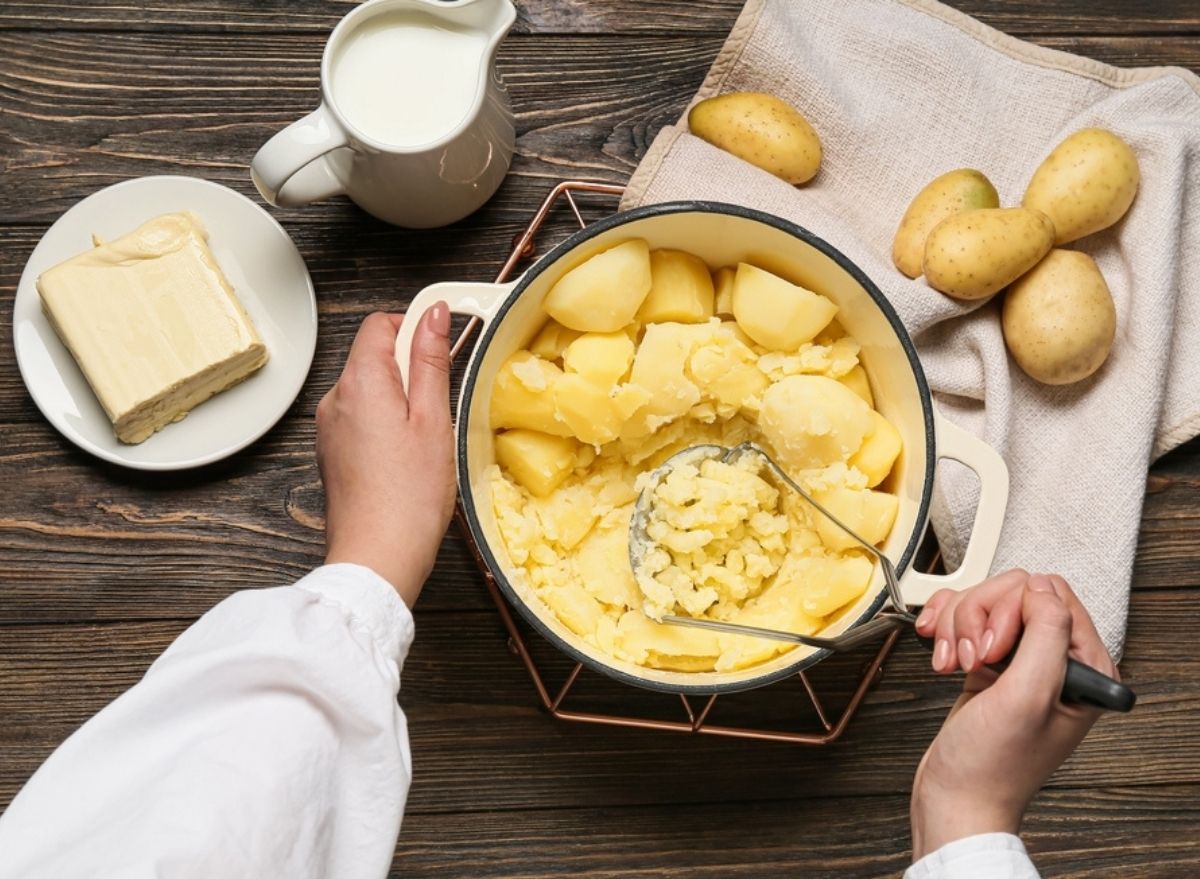
Don't forget to check off all your boxes when it comes to adding in your flavorful ingredients! Instead of just eyeballing, make sure you give each ingredient its own space to shine.
What does that mean exactly? Measuring your add-ins in ratio to your potatoes is step one. Food Network recommends using 1/2 cup of milk or cream and 1/2 stick of butter per one pound of potatoes. Although, the recipe might change here and there, depending on the texture (and dietary) preference of the eater.
What ingredients you pick is completely up to you and your tastebuds, but for best results, using unsalted butter can be extremely beneficial. Since butter is such a large factor in a creamy mash, you don't need the extra salt which can overpower the main event. The same goes for milk and cream. Too much of a good thing can turn a velvety mix into watery slush (not appetizing at all).
"Keep it simple," suggests Sidoti. "Butter, salt and pepper" or make them rich with the addition of cream, sour cream, or crème fraiche. For an extra flair, you can even add some grated parmesan or cheddar as a cheesy option. She also recommends you reserve about 1/2 cup starchy potato water to use to mash to get the proper consistency.
For step-by-step directions on making this homemade side, take a look at our Simple Garlic Mashed Potatoes Recipe (drop off the garlic step if you must).
Whip it up with the right tool
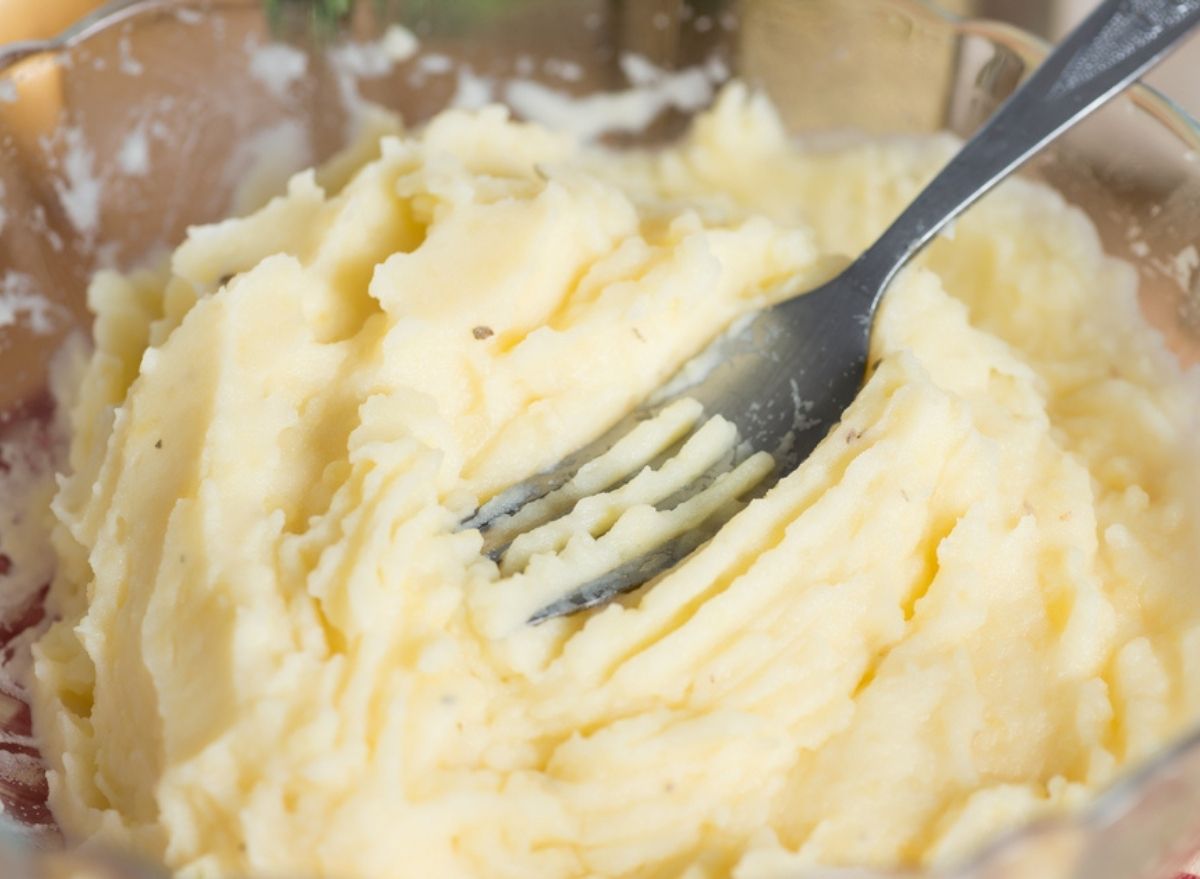
There are lots of different tools to choose from in the kitchen when it comes to mashing up a masterpiece. Sidoti recommends a potato masher, potato ricer, or even the back of a fork. A hand mixer on the lowest setting can also work but you run the risk of creating gummy mashed potatoes.
Tools you want to stay away from are whisks, food blenders, or processors. They are too powerful and will end up taking control over your starchy potatoes, making them sticky and too thick to handle. It's very easy to over-whip mashed potatoes, but it's a hard mistake to come back from.
READ MORE: 13 Creative Ways to Use Potatoes









